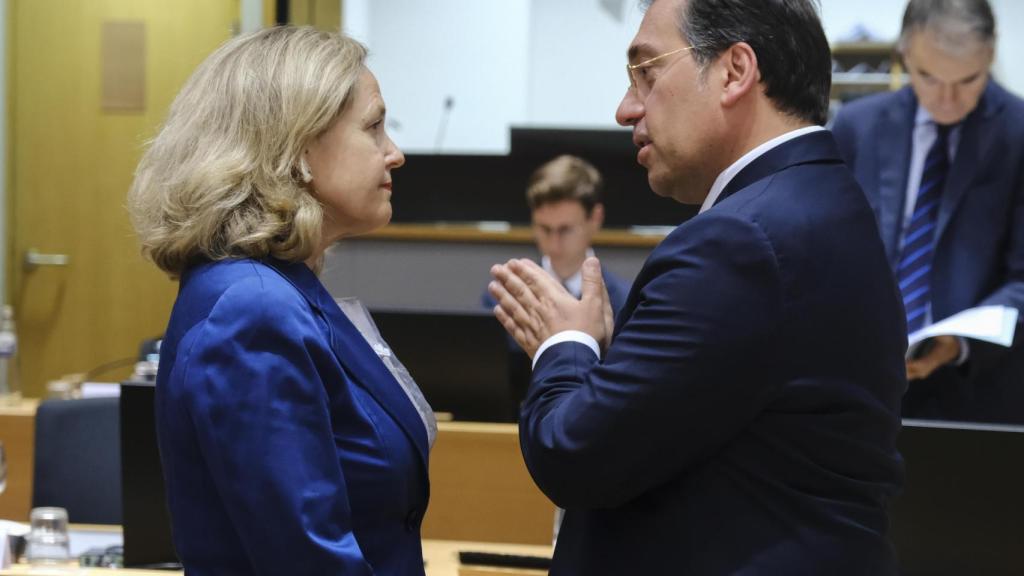The head of European Union diplomacy, Josep Borrelldecided this Monday cancel the informal meeting The meeting of foreign ministers scheduled for Budapest on 28 and 29 August – one of the central events of the Hungarian presidency of the Council – is a retaliatory measure for the visit of the prime minister Viktor Orbán to Vladimir Putin and his statements contrary to the official EU line on the war in Ukraine.
Instead, the meeting will be held in Brussels, which will prevent Orbán from using it as a platform to promote their particular positions before public opinion and generate confusionBorrell’s boycott follows the one already decided by the President of the European Commission, Ursula von der Leyenwhich has cancelled the traditional meeting of the college in the capital of the country that holds the presidency and will not send any commissioners to the Budapest meetings, only second-ranking officials.
“I think we need to send a signal, even if it’s just a symbolic signal, that go against EU foreign policy and disqualify the EU as the war side must have some consequences“, Borrell said at the end of the Foreign Affairs Council held on Monday, the last before the summer break.
[Von der Leyen castiga a Orbán con un boicot a las reuniones en Budapest de la presidencia húngara]
The High Representative for Foreign Affairs and Security Policy himself has admitted that among the Member States There has been no consensus on whether or not to boycott the Budapest meeting.. A measure that was supported by the Baltic countries and Poland or the Nordic countries, but which has not had the backing of Spain, Germany or Italy.
“Spain does not support boycotts within the EU“I have also made it clear that we clearly reject the trips made by Viktor Orbán, especially the one to Moscow. The presidency also has a role as spokesperson for the 27, seeking unity, and these actions do not seek it,” argued the Minister of Foreign Affairs, José Manuel Albares.
For his part, the Polish Foreign Minister, Radoslaw Sikorskihas proposed that the August meeting be held in kyiv as a show of solidarity with Ukraine, but the Hungarian foreign minister has opposed this.
Hungarian Foreign Minister Péter Szijjártó talks with Hungarian Enlargement Commissioner Olivér Várhelyi during their meeting in Brussels on Monday
In the end, it was Borrell himself who made the decision to move the August meeting from Budapest to Brussels, using his powers. The EU’s top diplomat insisted that, despite the differences over the boycott, almost all Member States (the only exception is Slovakia) They agree that Orbán has abused the presidency of the EU on its self-proclaimed ‘peace mission’, during which, in addition to Putin, it met with Xi Jinping in Beijing and with Donald Trump in the United States.
“With one exception, all Member States have been highly critical of the behaviour of the Hungarian Prime Minister and his Foreign Minister. The only one who is in favor of war is Putinwhich calls for the surrender and partition of Ukraine as preconditions for any negotiations or ceasefire. So if you want to talk about the warring sides, you have to talk about Putin and not the EU,” said a visibly angry Borrell.
“We want peace, and there is no one who wants peace more than the Ukrainians. But for a just and lasting peace, Ukraine’s freedom and independence must be preserved. “Any peace mission that denies these basic principles only benefits Putin and will not bring peace,” he insisted.

Foreign Minister José Manuel Albares talks with EIB President Nadia Calviño during the meeting on Monday in Brussels
“Each Member State is sovereign in its foreign policy, that’s true. But as long as it is a member of this club, it must comply with the Treaties and in particular Article 24.3, which requires loyal cooperation and the implementation of common positions in foreign policy. It’s not something you can do or not: you have to do it,” Borrell concluded.
For his part, the Hungarian Foreign Minister, Peter Szijjartohas described the EU as a “failure” for Ukraine and defended the need for diplomatic channels and a peace strategy. Szijjártó claims that Orbán’s “peace mission” “never claimed to represent the EU”, even though it was carried out during the first week of the Hungarian presidency and using the motto and logo of the presidency.
The head of Hungarian diplomacy maintains that his country has been the victim of “an aggressive and warlike hysteria” at the meeting in Brussels on Monday and said that the decision to boycott the meeting of foreign ministers in Budapest was “childish”. But he said that he would attend the alternative meeting called in the Belgian capital by Borrell.


![[Img #74664]](https://thelatestnews.world/wp-content/uploads/2024/12/James-Watson-The-controversial-genius-behind-the-double-helix-150x150.jpg)










Add Comment